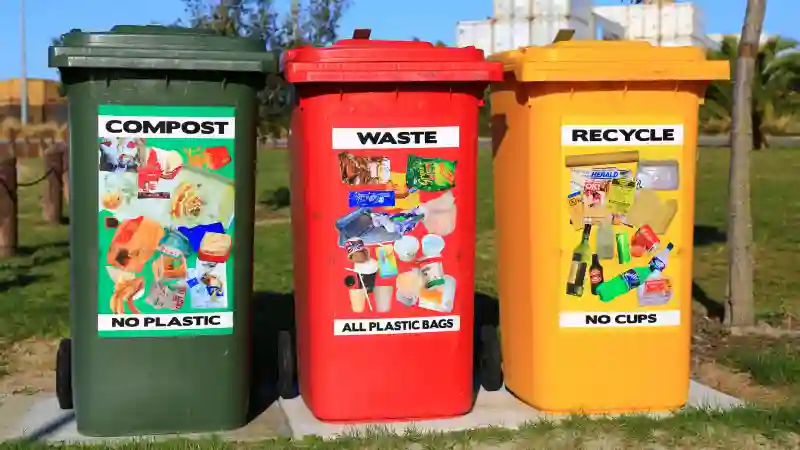Disclosure: This post may contain affiliate links, meaning we get a commission if you decide to make a purchase through our links, at no cost to you. Please read our disclosure for more info.
The construction industry faces big challenges with waste disposal. It’s often overlooked in the rush to meet project deadlines and stick to budgets. Contractors are also dealing with stricter rules and growing environmental concerns. As more people become aware of waste issues, construction practices must adapt. Rethinking waste management may seem tough, but it leads to better practices that benefit the future of construction.
With sustainability on the rise, contractors should take a closer look at how they handle waste. Responsible practices like construction material recycling not only help the environment but also bring financial and operational benefits. Those who make changes can see better profits, stronger reputations, and a positive impact on the planet.
In This Post:
Recycling Saves Money Compared to Traditional Disposal
Recycling turns waste disposal from a cost into a potential profit. Sending materials to landfills gets expensive fast, but recycling cuts these costs significantly. Transportation expenses also drop, freeing up funds for other parts of the project. Contractors who choose recycling often notice financial savings right away, making it easier to manage their budgets.
Recycled materials, like metals and wood, can be sold instead of wasted, creating extra income. Making recycling a regular part of the project process lowers long-term costs and may even qualify companies for government incentives. Recycling not only helps the environment but also improves financial gains.
Keeping Up with Rules and Standards
Waste management laws are getting stricter, making compliance a growing issue for contractors. New regulations at local and national levels now require recycling and waste reduction. For example, some states mandate that a specific percentage of construction waste must be diverted from landfills through recycling. Staying ahead of these rules helps avoid delays, fines, and other problems. Being aware of changing laws means smarter decisions about managing waste.
Recycling also opens the door to certifications like LEED, which make contractors more attractive to clients. Proactively following the rules reduces legal risks and shows a commitment to responsible practices. Regularly updating waste strategies keeps companies in line with the latest standards and ready for future opportunities.
Reducing Environmental Harm with Smarter Waste Practices
Construction waste has serious environmental effects, like contributing to greenhouse gases and draining natural resources. Tossing materials into landfills worsens these problems, but recycling can significantly reduce the damage. Recycling cuts down on the need to produce new materials, which is often energy-intensive and polluting. It also conserves resources by extending the life of valuable materials.
By switching to better waste practices, contractors can improve air and water quality. Recycling limits the pollution caused by traditional disposal methods and shows a commitment to protecting the environment. These efforts benefit the community and lead to healthier living spaces.
Building a Stronger Reputation with Sustainability
Today’s construction clients care about sustainability. Contractors who adopt eco-friendly waste practices boost their reputations and appeal to environmentally conscious customers. With sustainability becoming a key focus in the industry, many clients now see recycling programs as essential, not optional. This makes responsible waste management a major selling point.
Recycling strategies also give contractors a competitive edge. Using recycled materials can add a unique angle to projects, creating marketing opportunities that resonate with eco-minded clients. Promoting a strong commitment to sustainability helps secure contracts and builds lasting client relationships.
Boosting Innovation and Efficiency on Job Sites
Innovation is vital in construction, and recycling can play a big part. New technologies for sorting and reusing materials make job sites more efficient. Advanced sorting systems, like automated conveyor belt sorters or optical sensors for material recognition, improve organization, reduce waste, and streamline workflows, helping projects finish faster.
A recycling mindset also fosters collaboration with suppliers and waste haulers. Working together on recycling efforts builds stronger partnerships that benefit everyone. Staying updated on sustainable building trends positions contractors for future success. Regular training on new recycling technologies helps teams stay ahead in waste management.
Managing construction waste well isn’t just good for the planet—it’s smart for business too. Recycling can cut costs by reducing landfill fees and turning waste into profit, while also qualifying for potential incentives. Staying on top of changing rules helps avoid fines and delays, and certifications like LEED can make contractors more appealing to clients. Smarter waste practices protect resources, reduce pollution, and create healthier spaces. Recycling also improves efficiency, encourages innovation, and builds better partnerships with suppliers. Making recycling a regular part of projects, contractors can create a lasting impact on both their business and the environment.


